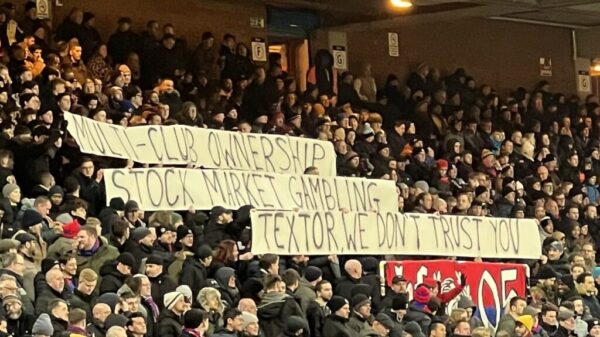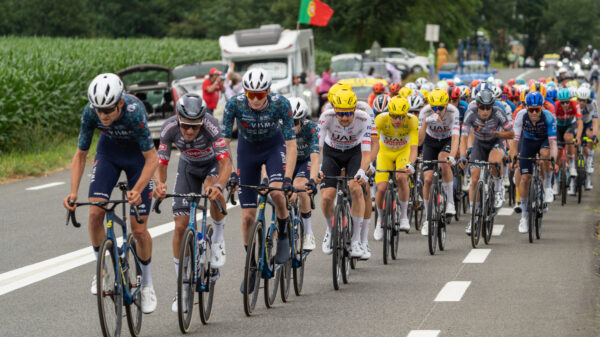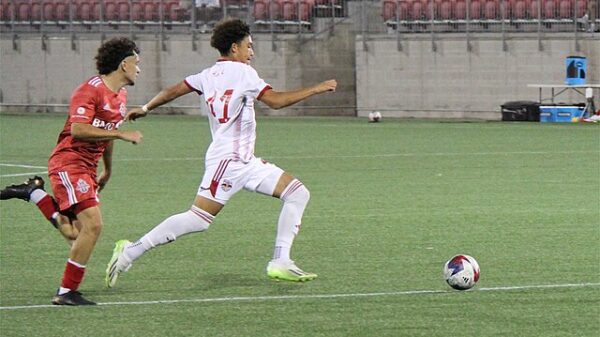Victor James Osimhen, born on December 29th 1998 in Lagos, Nigeria, had been in transfer talks with Italian Serie A side SSC Napoli since the January transfer window but was initially hesitant due to the country’s problem with racism in football. After hearing about the hardships and losses Osimhen faced growing up, it’s no surprise that racism is that last thing he wants to have to deal with.
Growing up, Osimhen used to sell sachets of water on the streets of Lagos under the scorching sun with his five siblings. His family didn’t have much. They made sure they did everything they could to help little Victor become a professional footballer. His mum managed to save up enough money to buy him football boots by the time he turned 6, and now it was up to Osimhen to put them to good use.
After establishing his reputation as a skilled player in his primary school and local community, he was invited to undertake trials at the Ultimate Strikers Academy in Lagos. Soon after, he joined the team on a permanent basis. One thing led to another, and Victor soon found himself representing Nigeria in the U-17 World Cup in 2014 — during which he was awarded the Golden Boot award as the highest scorer of the entire tournament.
It all seemed too good to be true. Osimhen accepted a transfer to German club VfL Wolfsburg, where he would earn enough money to support his family back home. However, following a shoulder injury which kept him out for the better half of his first season, he fell sick and spent the summer of 2018 in a hospital rather than representing the Super Eagles at the World Cup in Russia. Following this disappointing season, Wolfsburg decided to loan him out.
Victor underwent trials at Belgian clubs Zulte Waregem and Club Brugge. Unfortunately, he had just recovered from malaria, and underperformed — neither of the clubs decided to keep him. Luckily, another Belgian club, Charleroi, decided to give Osimhen a chance. Little did they know that he would go on to score 12 goals in 25 matches as as substitute. Charleroi decided to sign him on a permanent basis for the 2019-2020 season. However, Charleroi was offered a sum they could not refuse by French club Lille OSC. Osimhen decided that moving to the French Ligue 1 was the next big step in his career. He didn’t disappoint, and scored 13 goals in 27 matches throughout the 2019-2020 season.
By late 2020, his beloved mother passed away. At just 21 years old, Victor James Osimhen is facing the world without a motherly figure to rely on for advice and support. In addition to this, he continues to support all of his siblings and his father back in Nigeria. It’s safe to say that he has a lot of weight on his shoulders, and wants to avoid anything that might affect his mental well-being or performance on the pitch, racism the clearest example.
Following his successful stint in France, Lille received transfer offers from all over Europe, but SSC Napoli was the most determined to sign the youngster. Napoli have paid upwards of £45 Million to Lille, becoming their most expensive signing in history – a record that was previously held by Gonzalo Higuaìn when he joined Napoli from Real Madrid back in 2013.
Being an African footballer in Italy is no easy feat. Lukaku confronted racist fans making monkey noises in Cagliari, and Koulibaly was provoked and then sent off as a result of continuous taunting by racist Inter fans. Moise Kean was another example of this covered by Roar. These stories are two of hundreds, if not thousands, counting the minor leagues in Italy. Osimhen was so hesitant to make the move that he deemed it necessary to call Koulibaly and ask him if the city of Naples has a problem with racism, to which Koulibaly replied saying that the city of Naples has only shown him love and loyalty — especially after the incident against Inter Milan.
Although the Serie A and its clubs have been making continuous efforts to kick racism out of football, the problem is rooted in Italy’s culture rather than its fanbase. If Italy wants to improve its appeal to black athletes and expats in general, it must devise a long term strategy instead of short term punishments such as fines and stadium bans which can only do so much.
















